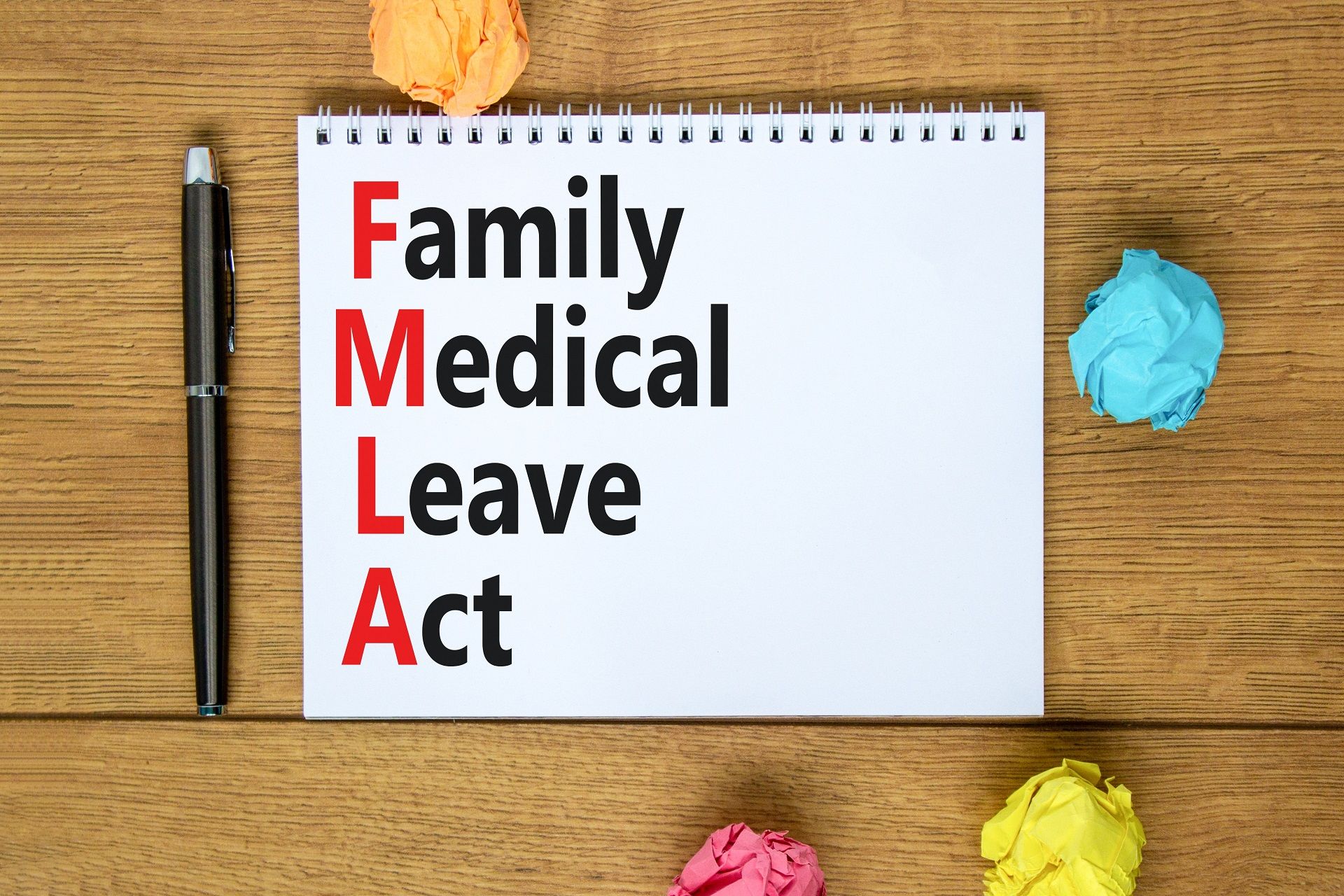Family and Medical Leave Act

Family and Medical Leave Act of 1993
The federal Family and Medical Leave Act of 1993 (hereinafter “FMLA”)( 29 U.S.C. §2601, et seq. ) applies to employers that employ fifty (50) or more employees for twenty (20) or more calendar workweeks in the current or preceding calendar year.The FMLA allows eligible qualified employees to take an unpaid leave of up to twelve (12) weeks during any twelve (12) month period for either: (A) the employee’s own “serious health condition” that renders him or her unable to perform his or her job functions, (B) for time to care for an immediate family member (child, parent or spouse) with a “serious health condition” or (C) for the birth of a child or for the placement of an adoptive or foster care child.
A “serious health condition” is generally defined as an illness, injury, impairment or physical or mental condition that requires inpatient care in a medical care facility or continuing treatment by a health care provider. An employer may require an employee to exhaust any and all accrued paid leave (such as sick, personal or vacation time) as part of their FMLA leave. It should be noted that leaves of absence and time off provided to an employee for medical/pregnancy-related disabilities are considered a part of, and not an addition to, leave provided for under FMLA.
An employee requesting FMLA leave due to a “serious health condition” must provide the employer with a written medical certification completed by the employee and his or her health care provider/physician. The certification must state: (A) the date on which the “serious health condition” began, (B) the probable duration of the “serious medical condition” and (C) any appropriate medical facts regarding the condition.
If the reason for FMLA leave is the employee’s own “serious health condition”, then the written medical certification must also include a statement that the employee is unable to perform his or her employment duties and why. If the reason for a proposed leave is the “serious health condition” of the employee’s family member (child, spouse or parent) then the written medical certification must include a statement that the “serious health condition” requires the employee to provide care for that person as well as an estimate of how long such assistance is needed.
To be eligible for FMLA leave, an employee must have been employed by the employer for at least twelve (12) months and have worked at least 1,250 hours during the previous twelve (12) month period. The twelve (12) month period during which an employee may take up to twelve (12) weeks of unpaid FMLA leave is measured from the date on which that employee requests a leave. No employee is entitled to take more than twelve (12) weeks of FMLA leave during any twelve (12) month period.
An employee wishing to take FMLA leave for a foreseeable event must make reasonable effort to schedule the leave so as to cause the least disruption to the employer’s business and must provide the employer with at least thirty (30) calendar days advance written notice of the foreseeable FMLA leave. Failure to provide advance notice may result in denial or deferral of the requested FMLA leave depending upon the circumstances. Any employee wishing to take FMLA leave for an unforeseeable event must provide written notice as soon as practicable after discovering the need for FMLA leave.
During FMLA leave, the employer must maintain the employee’s job position and maintain the employee’s medical benefits on the same terms as though the employee was actively working and never took FMLA leave. The employer is required to keep an employee who is on leave on the same healthcare coverage that would have been provided if the employee had stayed in employment continuously for the duration of the FMLA leave. Upon returning from FMLA leave, the employee is entitled to be restored to the same or an equivalent position as he or she held prior to the use of FMLA leave rights.
The legislative history associated with the FMLA indicates that leave taken under FMLA does not constitute a “qualifying event,” which is an event (such as a reduction in hours) that triggers the right to a continuation of benefits under the Consolidated Omnibus Budget Reconciliation Act of 1985 (COBRA), 29 U.S.C. §1161, et seq. S.Rep. No. 3, 103d Cong., 1st Sess. at 32 (1993). Therefore, FMLA leave does not trigger an automatic extension of COBRA benefits to the employee as a “:qualifying event”. A “qualifying event”, however, may occur after the employer learns that the employee is not returning to work and will no longer be entitled to leave under FMLA. If the employee fails to return from FMLA leave other than for reasons related to a “serious health condition” or events beyond the employee’s control, the employer is entitled to recover any premiums it paid for the employee in order to maintain group healthcare coverage during the leave. 29 U.S.C. §2614(c)(2).
United States Department of Labor – Family & Medical Leave Benefits
Disclaimer: The information on this website and blog is for general informational purposes only and is not professional advice. We make no guarantees of accuracy or completeness. We disclaim all liability for errors, omissions, or reliance on this content. Always consult a qualified professional for specific guidance.








